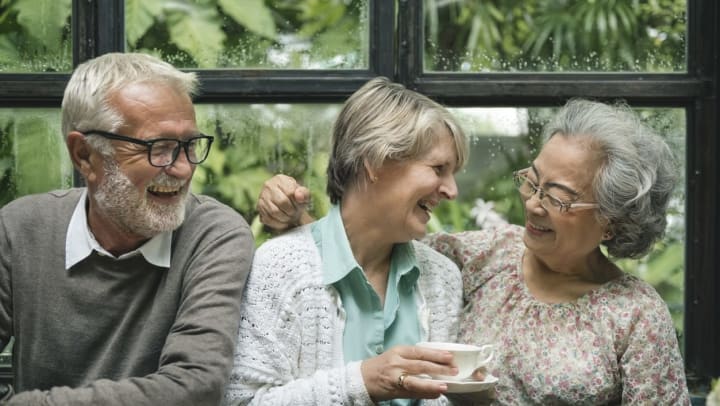Isolation and loneliness are two outcomes from the COVID-19 pandemic that can have serious negative effects on the health and wellbeing of older adults. In fact, there is evidence that loneliness can have the same health risk to the heart as smoking and increase the likelihood of mortality after a cardiac event.
In addition, the pandemic has reminded us that socialization is about more than just being around people. It’s about older adults creating a social network of companionship and support that they know they can depend upon; feeling cared for and valued.
That is why socialization is so important for heart health and general wellbeing of older adults, and why senior living could be a solution.
Understanding loneliness and isolation.
- Isolation is physical separation from others. During the pandemic, many older adults were physically separated from direct contact with loved ones and friends, and in some cases, home alone as a precaution against the virus.
- Loneliness is a feeling. One that comes when you perceive your relationships are lacking, due to events such as a divorce, the death of a loved one, a move to a new city, and so on. Or, when you just feel there’s no one to talk to or call upon for support. Most people experience this kind of short-term loneliness—known as reactive loneliness—from time to time in their lives.
- There is another kind of loneliness—one that can be harmful. It is possible to be around other people but still feel lonely. This “perceived loneliness” represents a dissatisfaction with your relationships and your connectedness. You may not be physically alone, but you feel that way.
When loneliness persists and becomes chronic—whether due to prolonged isolation from others or the perception of being isolated due to poor social connections—physical, mental, and emotional health can suffer.
How lonely are we?
According to a 2019 U.S. Loneliness Index conducted by Cigna, nearly 50 percent of U.S. adults respondents report sometimes or always feeling alone or left out. One in four U.S. adults rarely or never feel as though there are people who understand them.
These numbers are of concern because of what’s at stake. According to WebMD, chronic loneliness can disrupt sleep (which can eventually increase the likelihood of developing diabetes, high blood pressure, depression and obesity), and increase the risk of cognitive decline. In addition, loneliness can weaken the immune system by triggering the release of stress hormones.
But it’s the damage to heart health that might be the most concerning.
- For those with no prior cardiovascular disease. In a study published in the journal Heart, researchers found that people who are socially isolated or lonely are more likely to have a heart attack or stroke, compared to those with strong personal networks. The analysis discovered that loneliness, social isolation or both were linked to a 29 percent higher risk of heart attack and a 32 percent greater risk of stroke. The effect of being lonely on heart health was similar to that of other stressors, such as anxiety and job strain.
- For those with a history of heart failure. More than six million people in the US live with a heart that is unable to effectively pump throughout the body. Many patients are older and have other illnesses. According to the American Heart Association, a heart failure patient who feels isolated, lonely, or left out is more likely to require a return stay in the hospital than a person who has a strong social network. In addition, social isolation is regarded as a risk factor for stroke and acute MI (myocardial infarction), as well as increased risk for death after the event.
- It is as bad as smoking. Research has shown that lack of social connection heightens heart health risks as much as smoking 15 cigarettes a day, or abusing alcohol. The same study reported that loneliness and social isolation are twice as harmful to physical and mental health for older adults as obesity, and that both actual and perceived loneliness are associated with increased risk for early mortality.
How the right lifestyle could be the answer for older adults.
As the evidence suggests, the key to protecting your heart health and overall wellbeing isn’t just putting yourself in a crowded room. The key is to build a social network of people with whom you can connect regularly, depend upon, and enjoy being around.
The right senior living community could offer the living experience you are looking for when it comes to staying connected and developing enriching relationships. In an atmosphere of support and opportunity, it’s much easier to feel valued, cared for, and inspired to embrace your independence.
Senior living communities are also some of the safest places for seniors to be during the COVID-19 pandemic, thanks to high vaccination rates among residents and mandated safety measures for staff and visitors.
Is it the right time to learn more about senior living? At Clearwater Living, we can help you find out which options are the best fit for you, or your family, with this quick 4-5 minute survey. Or contact us today.

